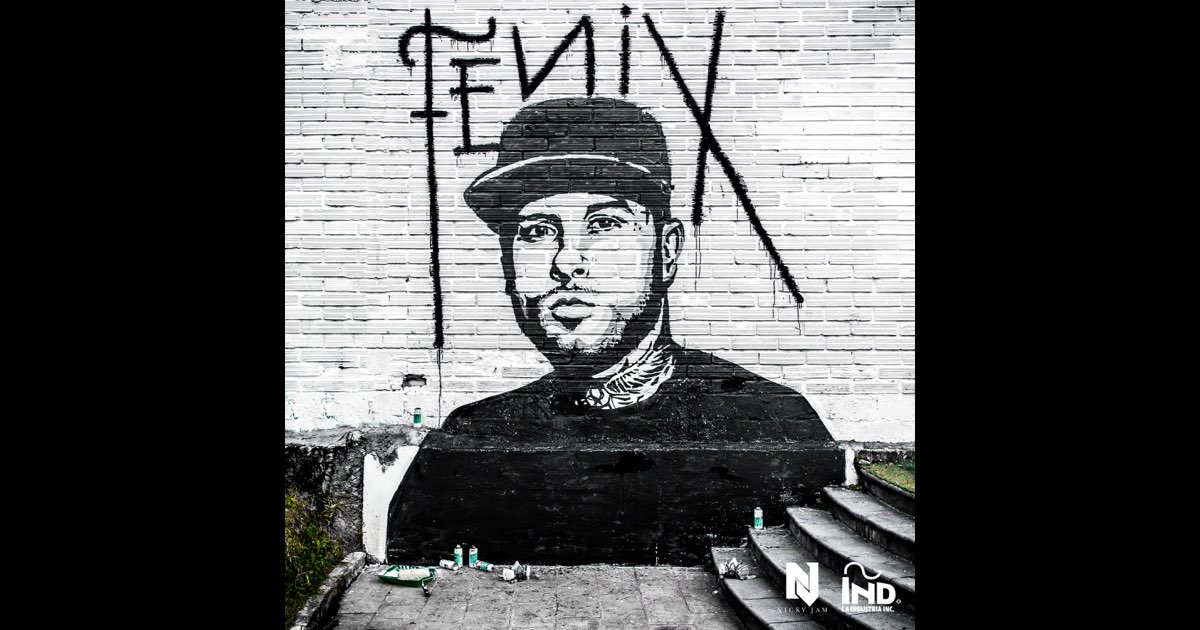Understanding 'Nicky Minaj Sex Tape' Searches: What Online Information Really Shows
So, when you type "nicky minaj sex tape" into a search bar, you're looking for something specific, right? It's pretty natural to be curious about what the internet holds on such topics. Yet, finding reliable information online, especially about celebrities, can be a bit of a challenge, as a matter of fact.
You know, the web is a vast place, full of all sorts of stories and details. Sometimes, a search for one thing might lead you to something else entirely, or maybe even to rumors that aren't quite true. It's really about sorting through what's out there, and that can take some thought.
How we get our facts, and how we figure out what's real, is a big part of being online today. Tools we use every day, like those for translation, actually help us connect with information from all over. This helps us understand the wider picture of what's being shared, and it's pretty important.
- Ralph Macchio Net Worth
- Which Country Colonized Iran
- Aishah Sofey New Leaked
- Aishah Sofey Content
- Leanne Morgan Journey Concert
Table of Contents
- Understanding Online Searches and Celebrity Rumors
- How We Access and Verify Information Online
- Navigating Sensitive Online Content
- Understanding Public Figures and Online Identity
- Frequently Asked Questions
Understanding Online Searches and Celebrity Rumors
The Nature of Information on the Web
So, when people type something like "nicky minaj sex tape" into a search engine, they're often looking for specific details or maybe just trying to see what comes up. It's almost like casting a wide net, hoping to catch some interesting information. But the internet, you know, it's a very big place, and not everything you find there is going to be accurate. Sometimes, what people look for online might be a rumor, or something that's just not proven. It's pretty common for stories about famous people to spread quickly, whether they are true or not, as a matter of fact.
The challenge here is figuring out what's real and what's just talk. Information can get shared so fast these days, and it can be hard to trace back to its original source. This means that claims, especially sensitive ones, need a lot of careful thought before you believe them. It's about being a bit of a detective, really, when you're looking for facts on the web.
People might be curious about all sorts of things, and the internet provides a way to explore those curiosities. Yet, with that ease of access comes the responsibility to think critically about what you're seeing. Every search, pretty much, is an opportunity to learn how to better separate solid facts from mere speculation. That is something we all do, more or less, every day online.
- Iran President Vs Supreme Leader
- Sophie Rain Leaked Nudes
- Daisys Destruction
- 124 Squid Game Death
- Bonnie Blue 1000 People Video
Distinguishing Public Figures
It's interesting, isn't it, how names can sometimes sound similar but refer to completely different people? Take, for example, the name "Nicky." While many might be searching for "Nicky Minaj," there are other well-known figures with a similar first name. For instance, you have Nick Rivera Caminero, who is professionally known as Nicky Jam. He's an American singer, born on March 17, 1981, and he's quite famous for hits like "X," "Travesuras," "El Perdón," and "Hasta el Amanecer." That's a lot of music, really.
Then there's also the popular TV show "Nicky, Ricky, Dicky & Dawn." This American comedy television series was created by Matt Fleckenstein and developed by Michael Feldman, premiering on Nickelodeon on September 13, 2014. The show ended in 2018, and the cast members like Lizzy Greene, Casey Simpson, Aidan Gallagher, and Allison Munn have gone on to do other things since then. One of the main characters is Nicholas Daniel Nicky Harper, who is one of the Harper quadruplets. He's often seen as the quiet one, trying to stay out of trouble, which is sort of a defining trait for him.
These examples, you know, show how a simple name like "Nicky" can lead to many different results. It really highlights the need to be precise in your searches and to verify who or what you are actually looking at. Sometimes, the internet just throws a lot of information at you, and it's up to you to sort through it all. This distinction is important for finding what you truly seek, and it helps avoid confusion, too, which is quite common.
How We Access and Verify Information Online
The Role of Search Engines and Translation Tools
Accessing information online is something we do all the time, and search engines are our main way of doing that. They help us find almost anything, but it's how we use them and what we do with the results that truly matters. For example, when you're on your computer, you can open Google Translate. At the top of the screen, you pick the languages you want to translate between. You choose the language you're translating from, or you can let it detect the language automatically. Then, you pick the language you want to translate into. In the text box on the left, you put in your text, and it helps you understand it, which is very useful.
The Google Translate app, you know, lets you translate text, handwriting, images, or even speech in more than 200 languages. You can also use Google Translate right on the web, which is pretty convenient. In your browser, you go to Google Translate, and at the top of the page, you click on "Websites." It's usually a good idea to set the original language to "Detect language automatically." You then put the website's URL into the "Website" field and click the Go icon. This is how you can read pages from all over the world, which is quite something.
Furthermore, you can translate text found in images using Google Translate on your device. This is a really important feature, especially when you encounter text in a picture. On some devices, you can even translate text you see through your camera. It's worth noting, however, that the accuracy of these translations can depend on how clear the text is. Small, unclear, or very stylized text might not translate as well, so that's something to keep in mind. These tools are amazing for getting information, but they also highlight how much information is out there, and how we need to be smart about what we read. The official Google Translate help center is a good place to find tips and tutorials on using the product, and other answers to frequently asked questions, so you can learn more about Google Translate Help Center and how it works.
Finding Reliable Sources
When you're looking for facts, especially about something as personal as a "sex tape," finding reliable sources is pretty much the most important step. It's like, you know, if you're building something, you want to use good materials. The same goes for information. Official websites, established news organizations, and reputable media outlets are usually a good starting point. They have processes in place to check their facts, which is a big deal.
Be a little cautious of social media posts or websites that look unofficial or have very sensational headlines. These sources often spread rumors or unverified claims without much thought for accuracy. If a story sounds too wild to be true, it very often is. It's always a good idea to cross-reference information. That means checking the same story on several different, trusted sites. If only one place is reporting something, and it's not a major news outlet, it might not be true.
Also, consider the date the information was published. Things change quickly online, and old news can sometimes resurface out of context. For sensitive claims about public figures, look for statements from the person themselves or their official representatives. Without official confirmation, any claim remains just that: a claim. This kind of careful checking helps you build a more accurate picture of what's happening, and it keeps you safe from misinformation, too.
Navigating Sensitive Online Content
The Importance of Digital Literacy
Being good at digital literacy means you know how to find, evaluate, and use information online in a smart way. It's not just about knowing how to click buttons; it's about thinking about what you're seeing. For example, when a search for "nicky minaj sex tape" pops up, it's a moment to pause and consider the source. Is it a trustworthy site? Does it look legitimate? Or does it seem a bit suspicious? These are important questions to ask yourself, you know, every time.
This skill also involves understanding the difference between fact and opinion, and recognizing when someone might be trying to trick you. Online, there are many people who try to get clicks or attention by spreading false stories, especially about celebrities. They might use misleading headlines or images to get you to click on something that could be harmful, like a virus or a scam. So, it's about being discerning with what you click on or share, which is pretty much a key part of staying safe online.
It's about developing a habit of questioning what you see. If something seems too shocking or too private, it probably deserves an extra layer of scrutiny. Learning more about online information on our site can help you build these skills. It's a continuous learning process, really, because the internet changes all the time, and new ways of spreading information, or misinformation, always appear. Staying updated on these things helps you make better choices.
Protecting Your Digital Experience
Keeping your online experience safe is a big deal, especially when you're looking at sensitive topics. It's not just about avoiding bad information; it's also about protecting your device and your personal details. For instance, if you click on a link that promises a "sex tape" or other private content, it could lead you to websites that try to install malicious software on your computer or phone. These programs can steal your information, or even damage your device, which is something nobody wants.
Always make sure your antivirus software is up to date, and be careful about what you download. If a website asks for personal information like your password or credit card details in an unexpected way, that's a huge red flag. Legitimate sites usually don't ask for that kind of information out of the blue. It's also a good idea to use strong, unique passwords for all your online accounts, and to use two-factor authentication whenever you can. These simple steps can make a big difference in keeping your digital life secure.
Think about your privacy settings on social media and other platforms, too. The less information you share publicly, the less likely it is that someone can use it against you. Being aware of the risks and taking proactive steps helps you enjoy the internet without falling into traps. You can learn more about digital safety on our site, and it's a good idea to check that out. Ultimately, a safe online experience comes from making smart choices, every single time.
Understanding Public Figures and Online Identity
When we talk about public figures, it's pretty important to remember that their online identity, and what's said about them, can be a mix of official facts and widely circulated stories. For someone like Nicky Minaj, who is a very famous artist, there's a lot of public interest. People search for all sorts of things related to her career, her music, and sometimes, personal matters. However, it's crucial to understand that not every piece of information you find online is officially confirmed or true. Our provided text, for example, gives us details about Nicky Jam, like his birth date and some of his popular songs, which are factual biographical points for him. It also tells us about the character Nicholas Daniel Nicky Harper from "Nicky, Ricky, Dicky & Dawn," describing him as the last quad born and someone who is quiet and tries to stay out of trouble. These are specific, verifiable details about those individuals or characters.
In contrast, when it comes to "Nicky Minaj sex tape," our provided text does not contain any biographical data or personal details about Nicky Minaj, nor does it mention any such tape. This means that any information about her, or about such a specific claim, would need to come from other, verified sources, not from the text we have here. This highlights a really important point: the information you're looking for might not be in every source, and what is available needs to be carefully checked against official records or reputable news. It's about being very clear on what information is actually available and where it comes from. You know, you can't just assume something is true because you saw it pop up in a search result.
The absence of certain details in a given source, like our provided text for Nicky Minaj, doesn't mean something doesn't exist, but it certainly means that the source doesn't confirm it. It pushes the user to look elsewhere, and to apply critical thinking to those other sources. So, when you're looking for information about public figures, always try to find official statements, reputable interviews, or well-established news reports. This approach helps you build a true picture of who they are and what is actually known about them, rather than relying on unverified claims. It's a key part of navigating the vast amount of information that's out there today.
Frequently Asked Questions
Is there actually a Nicky Minaj sex tape?
When people search for something like "Nicky Minaj sex tape," they are often looking for confirmation or details about such a claim. It's very important to know that official and reputable sources have not confirmed the existence of any such tape involving Nicky Minaj. Many online rumors about celebrities, especially sensitive ones, often lack factual basis. It's always best to rely on official statements from the celebrity or their representatives, or reports from well-established news organizations, rather than unverified claims found on less reputable websites or social media. Pretty much, if it's not from a trusted source, you should be a little skeptical.
How can I tell if online celebrity news is real?
To figure out if celebrity news online is real, you should always check the source. Is it a well-known news organization, or an official celebrity social media account? Be wary of websites with sensational headlines, poor grammar, or very few other articles. Look for multiple reputable sources reporting the same story. If only one obscure site has the news, it's probably not true. Also, check the date of the article; old rumors can resurface and look like new information. You know, a bit of detective work really helps here.
What are common online scams related to celebrity content?
Online scams related to celebrity content often involve tricking you into clicking on malicious links or downloading harmful software. Scammers might create fake news articles or social media posts promising exclusive content, like a "sex tape" or shocking photos. When you click, you could be redirected to a site that tries to install viruses, steal your personal information, or trick you into signing up for unwanted services. Some scams also involve phishing, where they try to get your login details for social media or email by pretending to be a legitimate service. It's pretty important to be careful and think before you click anything, especially when it seems too good to be true.
- Discovering The Multitalented Max Minghella An Artistic Journey
- 2 Babies One Fox
- Froot Cheating
- Lifemd Reviews
- Morten Harket The Voice Of Aha And His Enduring Legacy

The Inspiring Journey Of Nicky Whelan: A Stellar Career And Personal Life

Fénix” álbum de Nicky Jam en Apple Music

Nicky Whelan